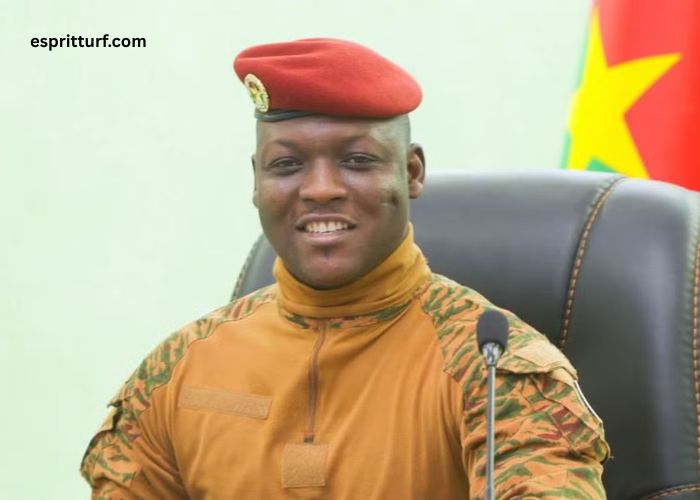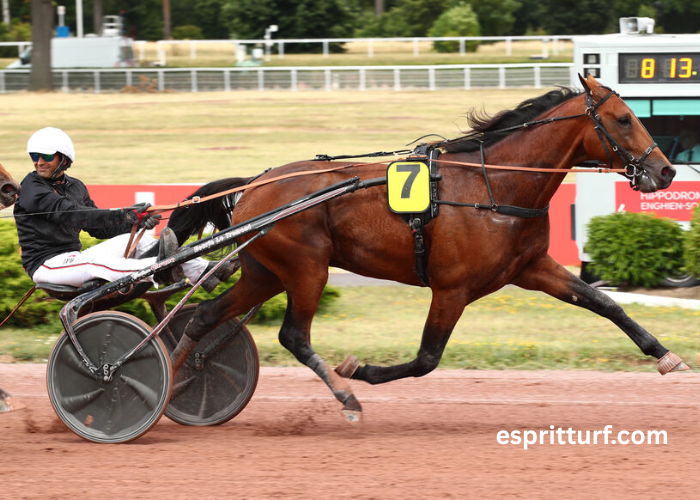In the complex political landscape of Burkina Faso, Capitaine Ibrahim Traoré has emerged as a pivotal figure. His leadership has significantly influenced the nation’s trajectory since 2022.
Born on March 14, 1988, in Kéra, Bondokuy Department, Capitaine Ibrahim Traoré is a military officer who rose to prominence through his decisive actions and strategic vision. His journey from a military officer to the interim President of Burkina Faso reflects his deep commitment to the nation’s sovereignty and security.
Who Is Capitaine Ibrahim Traoré?
Capitaine Ibrahim Traoré is a Burkinabé military officer who assumed the role of interim President of Burkina Faso in 2022. He is recognized for his decisive leadership and commitment to national sovereignty.
Before his rise to power, Capitaine Ibrahim Traoré served in the Burkinabé military, gaining experience that would later inform his leadership approach. His military background has been instrumental in shaping his strategies for national security and governance.
In September 2022, Capitaine Ibrahim Traoré led a coup that ousted the then-President, Paul-Henri Sandaogo Damiba. This move was driven by his desire to address the escalating security challenges facing the country.
Since taking power, Capitaine Ibrahim Traoré has focused on restoring stability, combating extremist groups, and asserting Burkina Faso’s independence from foreign influences. His leadership has been marked by efforts to strengthen the nation’s sovereignty and security apparatus.
What Are Capitaine Ibrahim Traoré’s Key Policies?
Capitaine Ibrahim Traoré has implemented several key policies aimed at addressing Burkina Faso’s security challenges and promoting national development. These policies reflect his commitment to the nation’s sovereignty and the well-being of its citizens.
One of the central aspects of Capitaine Ibrahim Traoré‘s policy agenda is the enhancement of national security. Recognizing the threats posed by extremist groups, he has prioritized strengthening the military and intelligence services to protect the country’s borders and citizens.
In addition to security reforms, Capitaine Ibrahim Traoré has emphasized the importance of education and national unity. He advocates for a reformed education system that fosters patriotism and civic responsibility among the youth.
Economic development is another area of focus for Capitaine Ibrahim Traoré. He has sought to attract foreign investment and improve infrastructure to stimulate economic growth and reduce poverty.
Furthermore, Capitaine Ibrahim Traoré has worked towards reducing Burkina Faso’s dependence on former colonial powers. His administration has pursued policies that promote self-reliance and strengthen ties with other African nations.
How Has Capitaine Ibrahim Traoré Addressed Security Challenges?
Since assuming power, Capitaine Ibrahim Traoré has faced significant security challenges, particularly from extremist groups operating in the Sahel region. His approach to these challenges has been multifaceted and assertive.
Capitaine Ibrahim Traoré has prioritized the strengthening of Burkina Faso’s military capabilities. This includes the acquisition of advanced equipment and the training of personnel to effectively combat insurgent groups.
In addition to military measures, Capitaine Ibrahim Traoré has encouraged civilian participation in security efforts. Initiatives such as community defense programs have been introduced to empower local populations in safeguarding their communities.
Recognizing the importance of regional cooperation, Capitaine Ibrahim Traoré has sought to enhance collaboration with neighboring countries facing similar security threats. Joint operations and intelligence sharing have been key components of this strategy.
Despite these efforts, challenges persist. The ongoing threat from extremist groups requires continuous adaptation of strategies and sustained commitment to national security.
What Is Capitaine Ibrahim Traoré’s Vision for Burkina Faso?
Capitaine Ibrahim Traoré envisions a Burkina Faso that is sovereign, secure, and prosperous. His vision encompasses several key objectives aimed at transforming the nation.
Central to Capitaine Ibrahim Traoré‘s vision is the restoration of national sovereignty. He seeks to reduce foreign influence and promote policies that reflect the interests and values of the Burkinabé people.
Economic development is another pillar of his vision. By improving infrastructure, attracting investment, and fostering entrepreneurship, Capitaine Ibrahim Traoré aims to create a more resilient and self-sufficient economy.
Education and national unity also feature prominently in his vision. He advocates for an education system that instills civic values and prepares the youth to contribute positively to society.
Furthermore, Capitaine Ibrahim Traoré envisions a Burkina Faso that plays a leading role in regional affairs. Strengthening ties with neighboring countries and participating actively in regional organizations are key aspects of this vision.
How Has the International Community Responded to Capitaine Ibrahim Traoré’s Leadership?
The international community’s response to Capitaine Ibrahim Traoré‘s leadership has been varied. While some nations have expressed support for his efforts to restore stability, others have raised concerns about the democratic process.
Organizations such as the Economic Community of West African States (ECOWAS) have called for a return to constitutional order and the holding of elections. However, Capitaine Ibrahim Traoré has emphasized the need for improved security conditions before elections can be held.
Some countries have extended cooperation to Capitaine Ibrahim Traoré‘s administration, particularly in areas related to security and counterterrorism. This cooperation reflects a shared interest in addressing the challenges posed by extremist groups in the region.
At the same time, certain international partners have imposed sanctions or expressed criticism regarding the coup and the suspension of democratic processes. These differing responses highlight the complexities of international relations in the context of Burkina Faso’s political situation.
Conclusion
Capitaine Ibrahim Traoré stands as a central figure in Burkina Faso’s current political landscape. His leadership has been characterized by a focus on national sovereignty, security reforms, and efforts to promote economic development. While challenges remain, his vision for a sovereign and prosperous Burkina Faso continues to shape the nation’s path forward.



